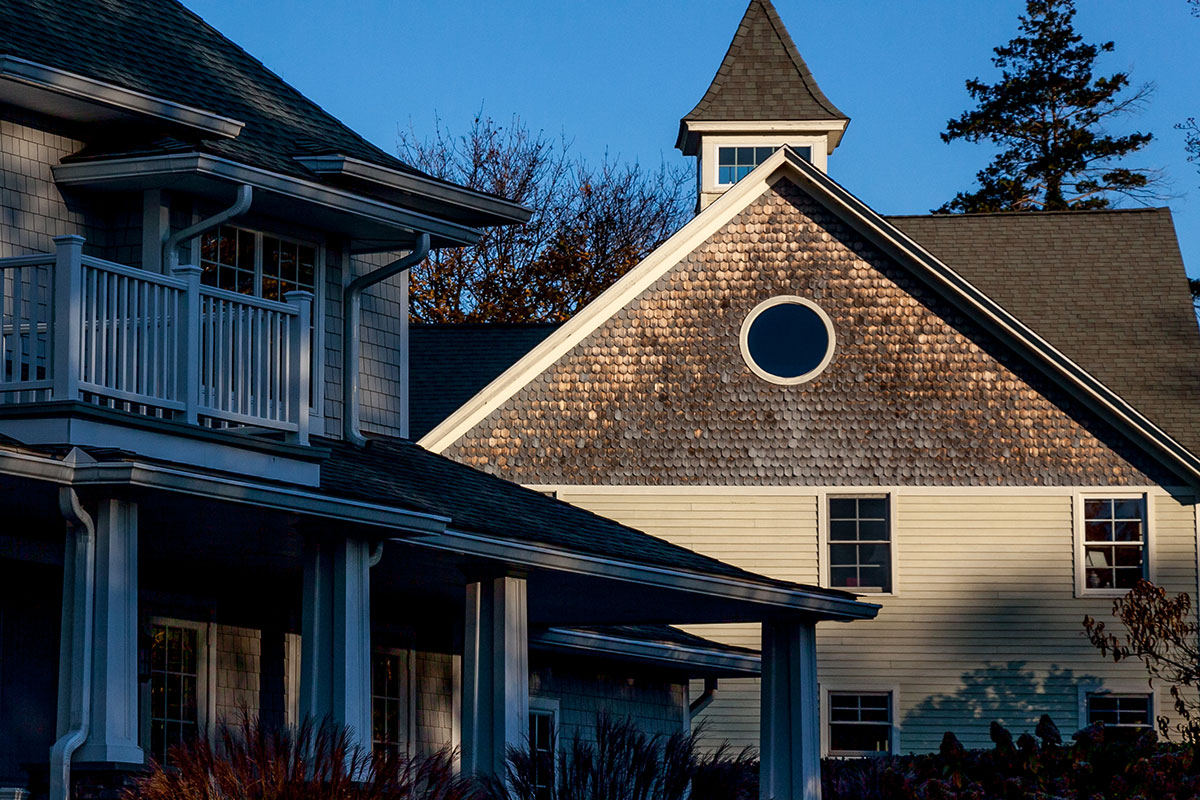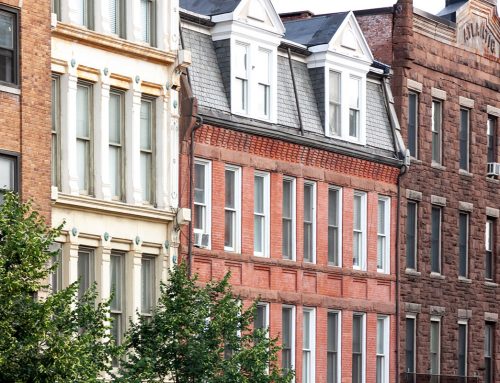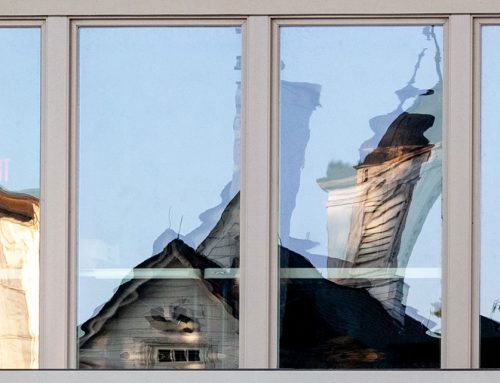How to reduce costs and risks when buying a new house.
There’s something appealing about a brand new house — you get to pick out the carpet, drapes, and appliances, and have everything designed just the way you want it. New houses often come with more space and better appliances, require less immediate fix-up work, and are more energy-efficient. New houses are also sometimes priced more reasonably than comparable old ones. To get a good sense of the new house development in your area, visit www.homebuilder.com.
But, there’s a downside. Too often, the advantages of new houses are overshadowed by problems such as shoddy construction and lengthy construction delays. Here are some suggestions on how to avoid problems.
Choose the Developer, Then the House
The most important factor in buying a new house is not what you buy (that is, the particular model), but rather who you buy it from. A responsible builder understands that he or she has a reputation to protect, constructs homes that live up to their promises, and remains available should issues arise. More than a few builders, however, take your money, throw together a house that starts falling apart on day one, and then stop returning phone calls. The message is, don’t buy a house — buy its builder.
To check out a builder, contact:
- owners who live in the development you’re considering, if possible. If the development is run by a homeowners’ association, talk to the association members and the board of directors. If nothing has been built yet, talk to owners in a recently completed development by the same builder.
- county planning or building department staff who deal with local developers. For the best results, ask your questions positively. “Do Brady and Jones finish their projects on time, with few complaints?” will probably be answered candidly, but “Is it true Brady and Jones is a real schlock outfit?” might not be.
- real estate agents who’ve worked in the area for some time. Agents won’t usually deal directly with new house sales, but they may have handled the resale of houses built by developers and may know their reputations.
- the state or local licensing or consumer protection agency that oversees contractors, and the local Better Business Bureau. Ask whether any complaints have been filed against the developer.
- other homeowners, via homeowner-run websites such as www.hadd.com (Homeowners Against Deficient Dwellings) and www.hobb.org (Homeowners for Better Building).
Have the House Inspected
Hire an experienced contractor or home inspector to evaluate the house you’re considering for the quality of construction. When a house is being worked on, it’s easy to see whether construction standards are high or not. If your house isn’t built yet or is already finished, have the inspector or contractor look at other houses the developer is in the process of building.
Even if the home is finished when you buy it, hire a home inspector to give it a thorough examination. Also, you should visit your home site periodically during construction and take the final walk-through to catch last minute cosmetic defects.
|
Be Wary of Optional Add-Ons
Many developers advertise houses at comparatively low prices to get you to come out and have a look. Once there, commissioned salespeople show you models loaded with expensive extras such as a spa, fireplace, granite countertops, and giant bathrooms. If you become seriously interested, the advertised price will rise as you decide that certain extras are essential or irresistible.
Buying extras lets you semi-custom design your home. But ask yourself what you really need and how much it will cost. Upgrades often add 5% to 20% to the cost of a new home. To get the most for your money, follow these steps:
- Take care of essentials first. Be practical, both for your own sake and for the sake of your home’s resale value. A fenced yard (especially if you have children or pets), more electrical outlets, wiring for high-speed Internet access, and, in many areas, air conditioning, are day-to-day necessities. A hot tub and wine cellar are not.
- Make sure prices are fair. Some developers are less ethical in pricing extras than others. Steer clear of those who deliberately use poor-quality materials in highly visible spots in their models, almost forcing you to upgrade to over-priced substitutes.
- Negotiate. Ask for one free extra for every two you buy. For example, if you pay top dollar for good carpets and kitchen cabinets, ask the developer to throw in a better stove at no charge. And don’t be afraid to ask for the right to buy and install extras on your own instead of paying high prices for the developer’s.
- Read the fine print. Many new house contracts contain a clause saying that the model’s features, such as carpets and appliances, are not necessarily the same brands you’ll receive. You are guaranteed only the functional equivalent of what you see, which is typically different and costs the builder far less. Make a list of the precise features you’re concerned about (with brands or makes and models) and include it in your contract. If one developer won’t accommodate you, shop elsewhere.
- Get it in writing.When dealing with a developer’s sales representative, get all promises as to what will be done, and when, in writing. Before you sign the purchase contract, make sure it includes every one of the agreed-on changes. If you’ve already signed the contract when you negotiate changes, write them down in a separate document and have the developer or the sales representative sign it. Don’t rely on oral commitments, which are notoriously unreliable and almost impossible to enforce.
Get a New Home Warranty
You’ve probably heard horror stories about new houses that begin to disintegrate soon after the buyer moves in — the roof leaks, the basement floods after the first big rain, or the doors won’t close. This shouldn’t be a problem if you buy from a reputable developer — but not all developers are reputable, and you may not be sure about yours.
Your best bet is to buy a house with a new house warranty from an independent insurance company. Typically, they cover workmanship and materials for one year; plumbing, electrical, heating, and air conditioning systems for two years; and major structural defects for ten years.
You can also buy a new home warranty on your own, but you’ll have to shop carefully to find one that covers major structural defects.
Protect Yourself Against Delays
It’s best not to close escrow on a new home until the work is completed. You don’t want to leave the builder an opening to delay construction into the indefinite future.
Unfortunately, however, in a hot market you may be forced to close on a home that isn’t finished (or even started). If so, you’ll be asked to sign a very one-sided contract. You will be given numerous deadlines (to make deposits, agree to design changes, get loan approval, sell your present house, and close escrow), but the developer will have great leeway — sometimes up to a year from the target date — to deliver the house.
Do what you can to negotiate a fairer deal. Most important, you want to establish a reasonable date at which you can cancel the contract and get all of your money back if the developer doesn’t deliver the house. Again, make sure it’s in writing.
If you must close escrow because you need to move in, but significant and costly work remains, insist that the necessary funds be taken out of what you’re paying the developer and placed in a trust account after escrow closes. Then ask for a written agreement stating that if the work is performed on time, the money will be released to the developer; but if it isn’t, the funds go to you to hire someone else to do the work. If the developer refuses, at least make a list of what needs to be done, assign a completion date to each, and have it signed by the developer.
If the developer fails to make a good faith effort to do the work, you may be able to sue in small claims court if you have out-of-pocket losses, such as rent or hotel bills, because you could not move in on time. For more information on small claims court, see Everybody’s Guide to Small Claims Court, by Ralph Warner (Nolo).










